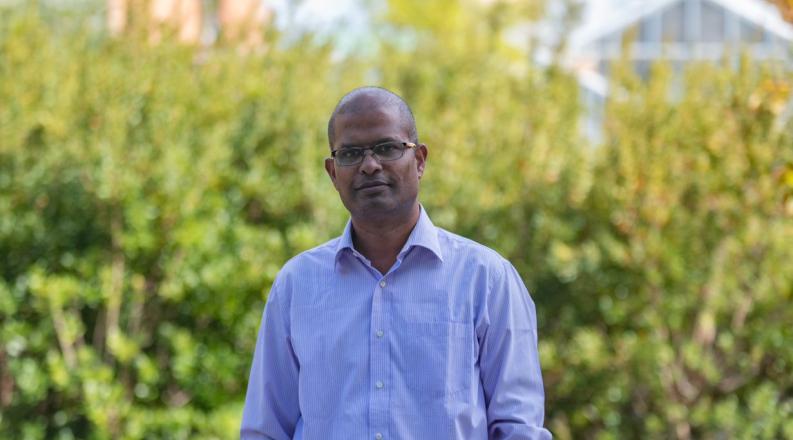By David Simpson
The fields of science, technology, engineering and mathematics are more demographically diverse than they used to be. Granted, that’s progress.
But a 2021 analysis by the Pew Research Center found that, in those fields, Black and Hispanic workers remained underrepresented compared to their share of all workers. The same study found that female employees were underrepresented in physical sciences, computing and engineering.
On Nov. 17 at Old Dominion University, experts will gather to discuss the “Power of Diversity and Inclusion in STEM: Progress, Challenges and Next Steps.” The program will take place from 5 to 7 p.m. in the Webb University Center North Café.
The “Diversity Dialogue” is part of World Culture Festival activities happening in Hampton Roads. The festival is an international project of the Art of Living Foundation, an educational and humanitarian organization created in 1981 by Indian spiritual leader Gurudev Sri Sri Ravi Shankar.
“Increasing diversity in STEM is critical to our scientific, economic and social progress,” said Sharan Asundi
one of the organizers of the panel and an assistant professor of space systems engineering at ODU. “To increase diversity in STEM, we need to start inculcating a diverse mindset in individuals and groups at an early age.”
Austin O. Agho, provost and vice president for academic affairs, will host the STEM dialogue. Besides Asundi, organizers include Annette Finley-Croswhite, director of the Center for Faculty Development and professor of history; and Shanda Jenkins, director of the Office of Faculty Diversity and Retention.
Panelists include:
- Gail Dodge, dean, College of Sciences, ODU
- Annelies Richmond, director at SKY Campus Happiness Program, public speaker, wellness expert and leadership coach, Art of Living Foundation
- Clayton Turner, director, NASA Langley Research Center
- Milton Brown, vice dean for research, Eastern Virginia Medical School
- Charles English, interim director and CEO, Virginia Air & Space Science Center
The panelists will talk about STEM diversity progress made in their institutions, and initiatives underway to address challenges they face. Robyn Niss, vice president at engineering consulting firm Kimley-Horn and Associates, will moderate.
The 2021 Pew analysis found that Hispanics were 8% of STEM workers while making up 17% of all employment across all occupations. Blacks were 9% of STEM while comprising 11% of all workers.
Women – 47% of all workers – were 50% of those employed in STEM but only 25% of those in computer jobs, 15% of engineers and architects and 40% of those in physical science jobs.
Whites and Asians were found to be overrepresented in STEM compared to their share of the workforce.
“While the stereotypes and outward prejudices with regard to STEM fields have decreased, systemic barriers like implicit biases continue to be significant hurdles to effectively overcome this challenge,” Asundi said. Such biases may be based on race, gender, sex, country of origin or other factors, he added.
But National Academy of Sciences research published in 2004 suggests that a more diverse team is likely to outperform a homogeneous team, he said.
“Therefore, we must be more inclusive, not just out of fairness but also out of the knowledge that working together benefits us all.”



